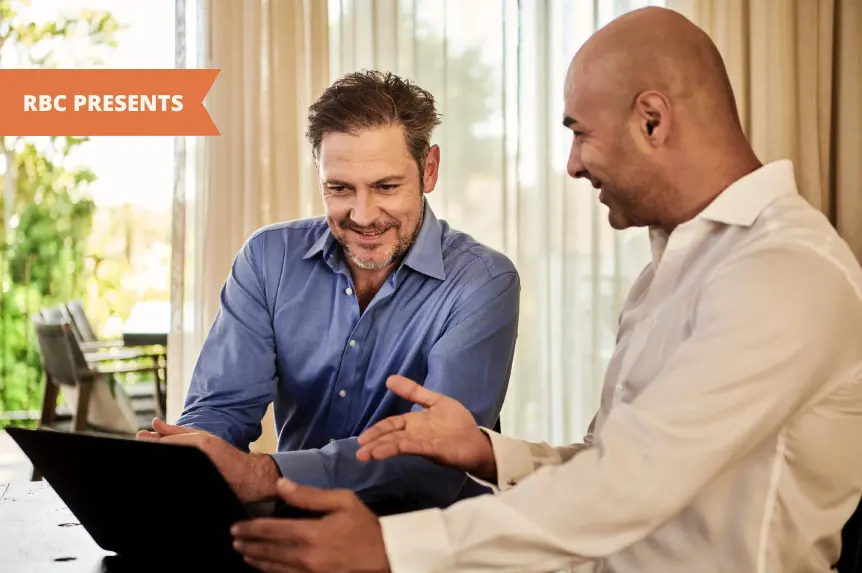What Does it Mean to Leave a Legacy?
There are lots of ways to leave a legacy, but there’s one common thread to make it happen: having a plan. Find out some common myths about Will and estate planning.
It’s easy to understand what it means to leave a legacy when we think of famous musicians, artists or philanthropists. What’s left behind as a legacy is usually pretty obvious – a lengthy catalogue of great musical hits, incredible artwork or buildings bearing names of significant donors. But what does it mean to leave a legacy for the rest of us?
There’s no single answer to this, for sure. For some, it means passing your most treasured worldly possessions to your loved ones when you’re gone. That can mean your home and/or vacation property, cars, jewelry, art, investments, bank accounts and even digital assets (think frequent flyer points). For others, leaving a legacy is all about leaving a gift to ensure specific causes near and dear to your heart can continue their great work thanks to a little help from you.
Regardless of what leaving a legacy means to you, there’s one common thread that makes it happen: having a plan in place.
Younger Canadians, in particular, are invested in building a legacy and making a positive impact on the world by giving to causes they care about, according to an Ipsos survey conducted for RBC Royal Trust®. In fact, 53 per cent of 18- to 34-year-olds have incorporated charitable giving into their estate plans, the survey found. That compares with 25 per cent of 35- to 54-year-olds, and 13 per cent of those aged 55-plus.
Still, while more than half of the survey participants say they understand estate planning fundamentals, 52 per cent admit they don’t have a Will in place to leave their legacies. Those who don’t have a Will are most likely to say it’s because they don’t know where to start (25 per cent), followed by them not feeling they have any assets to leave behind or that they’re too young.
Let’s bust a few of those common myths about Will and estate planning with a few insights from the survey.
Myth: I’m too young to have a Will or think about estate planning.
Reality: There is no perfect age for preparing a Will or appointing a power of attorney. People can pass away unexpectedly at any age, so having a plan for your estate, which includes a Will, ensures your wishes for end of life (burial, cremation, who should care for pets, who will receive your most valued belongings, who takes over your social-media accounts, etc.) are known and carried out. Plus, Wills can be updated as your circumstances change throughout life.
Myth: I don’t have enough assets.
Reality: One in five (19 per cent) 18–34-year-olds and one quarter of 35-54-year-olds say they don’t have enough assets to leave behind. However, there is no set level of assets required; many people have something at these ages (savings, car, furniture, etc.), and very likely digital assets – from online accounts to intellectual property to photographs on a phone – that require instructions on how they should be handled.
Myth: Preparing a will is difficult or costly.
Reality: One quarter (25 per cent) of Canadians without a will say it’s because they don’t know where to start. Yet wills can be increasingly prepared through low-cost digital options or with the help of a qualified legal advisor – in fact 21 per cent of 18-34-year-olds say they were encouraged by one to do so. Corporate executors – estate and trust professionals skilled in the intricacies of estate administration – exist to help manage an estate.
Myth: Acting as an executor is easy.
Reality: Estates are becoming more complicated and acting as a loved one’s executor can often be stressful, time-consuming and often fractures family relationships. An executor—known as a liquidator in Québec—administers a person's estate after they've passed away, based on wishes outlined in their Will and in accordance with all applicable laws. An executor can be a friend or family member, a trust company, lawyer or accountant, or some combination of the above.
What does leaving a legacy mean to you? Since May is Leave a Legacy month in Canada, it’s a perfect time to think about it.
For more from our partners at Inspired Investor, visit rbc.com/inspiredinvestor.
This article is intended as general information only and is not to be relied upon as constituting legal, financial or other professional advice. A professional advisor should be consulted regarding your specific situation. Information presented is believed to be factual and up-to-date but we do not guarantee its accuracy and it should not be regarded as a complete analysis of the subjects discussed. All expressions of opinion reflect the judgment of the authors as of the date of publication and are subject to change. No endorsement of any third parties or their advice, opinions, information, products or services is expressly given or implied by Royal Bank of Canada or any of its affiliates.
The material in this What Does It Mean to Leave a Legacy? article is intended as a general source of information only, and should not be construed as offering specific tax, legal, financial or investment advice. Every effort has been made to ensure that the material is correct at time of publication, but we cannot guarantee its accuracy or completeness. Interest rates, market conditions, tax rulings and other investment factors are subject to rapid change. You should consult with your tax advisor, accountant and/or legal advisor before taking any action based upon the information contained in this What Does It Mean to Leave a Legacy? article.











